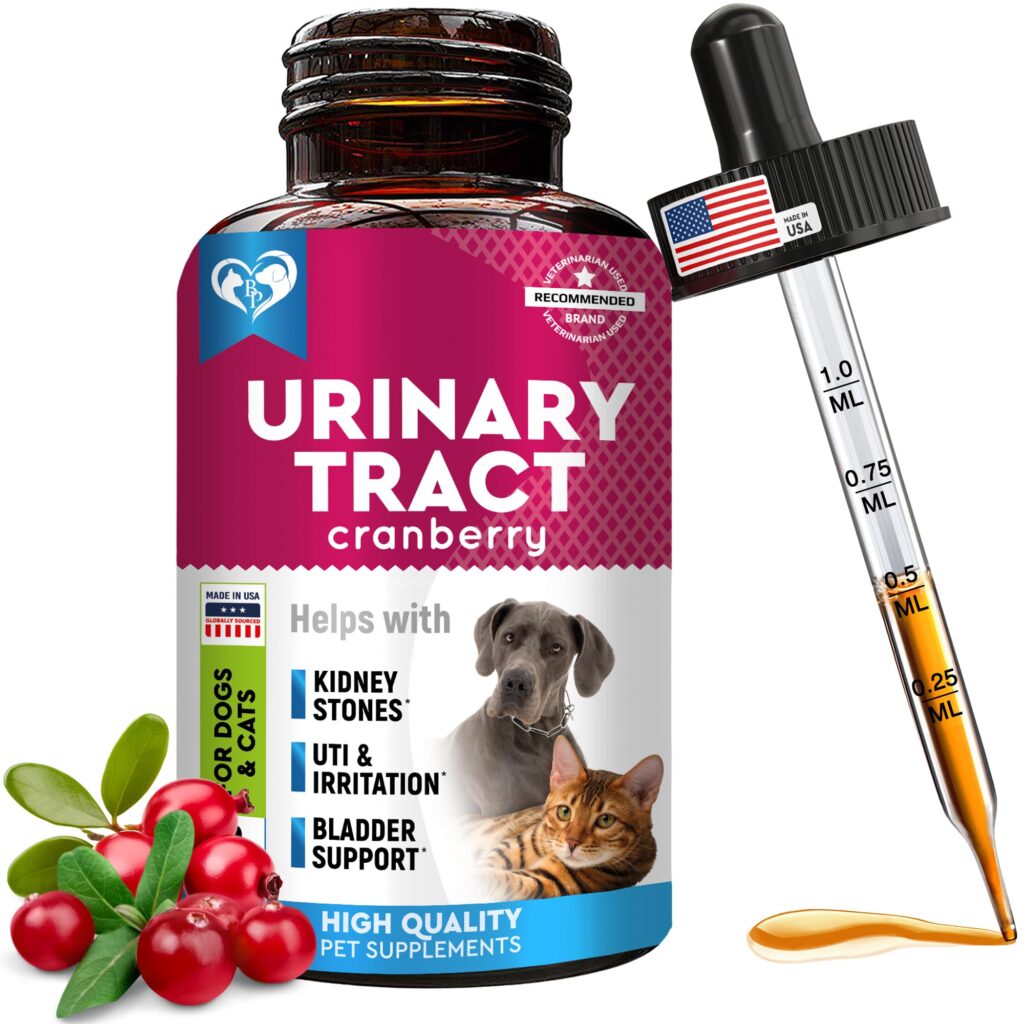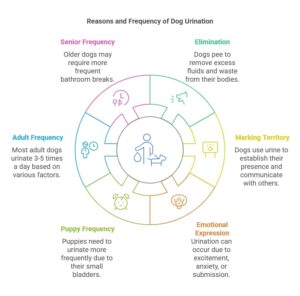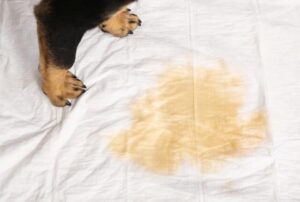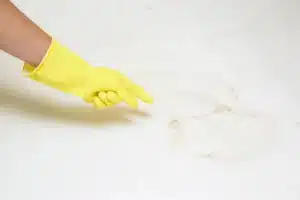The best non-prescription dog food for bladder stones includes brands like Hill's Science Diet and Royal Canin Urinary. These foods promote urinary health and help dissolve certain types of stones.
Bladder stones can be a significant health issue for dogs, causing discomfort and potential complications. Choosing the right diet is crucial for prevention and management. Non-prescription dog foods designed for urinary health often contain specific nutrients that support a balanced pH level in the urine.
They help dilute urine, reducing the chances of stone formation. Many pet owners prefer these options for their convenience and effectiveness. Understanding the dietary needs of your dog is essential for maintaining their well-being and preventing future health problems related to bladder stones.

Table of Contents
ToggleIntroduction To Canine Bladder Stones
Canine bladder stones are solid mineral formations in a dog's bladder. They can cause pain and discomfort. Understanding these stones is vital for your dog's health. Early detection and proper diet can help manage this issue.
The Impact On Dog Health
Bladder stones can severely affect a dog's well-being. Symptoms may include:
- Frequent urination
- Pain during urination
- Blood in urine
- Loss of appetite
- Vomiting
These symptoms can lead to serious health problems. In severe cases, stones may block urine flow. This can cause urinary tract infections or kidney damage. Regular vet check-ups are essential for early detection.
Common Types Of Bladder Stones
Several types of bladder stones affect dogs. Each type has different causes and treatments. Here are the most common types:
| Type of Stone | Common Causes | Breed Predispositions |
|---|---|---|
| Struvite | Urinary infections, high protein diet | Female dogs, certain breeds |
| Calcium Oxalate | Excess calcium, dehydration | Miniature Schnauzers, Yorkshire Terriers |
| Urate | Liver disease, certain genetic factors | Dalmatians, Bulldogs |
| Cystine | Genetic defects in metabolism | Newfoundlands, Dachshunds |
Recognizing the type of stone is crucial for treatment. Consult your veterinarian for proper diagnosis and management.

Diet's Role In Bladder Stone Formation
Diet plays a crucial role in preventing bladder stones in dogs. Certain foods can either help or harm urinary health. Understanding the right nutrition can make a significant difference.
How Diet Influences Urinary Health
The right diet helps maintain a healthy urinary tract. It affects urine pH and mineral levels. Here are key factors:
- Hydration: Adequate water intake dilutes urine. This prevents stone formation.
- Mineral Balance: Certain minerals contribute to stone development. A balanced diet reduces risks.
- pH Levels: Diet can alter urine pH. Some stones form in acidic or alkaline urine.
Ingredients To Avoid
Some ingredients can increase bladder stone risk. Avoid these:
| Ingredient | Reason to Avoid |
|---|---|
| High Oxalate Foods | Can lead to calcium oxalate stones. |
| Excessive Protein | May increase uric acid levels. |
| High Sodium | Can cause dehydration and concentrated urine. |
| Artificial Additives | May disrupt normal urinary function. |
Choosing the right dog food is essential. Focus on natural ingredients and balanced nutrition. Always consult a vet for personalized advice.
Selecting The Right Food For Bladder Health
Choosing the right food for your dog is essential. Bladder health can greatly affect their quality of life. Proper nutrition helps prevent bladder stones. It also aids in overall well-being.
Key Nutritional Considerations
Focus on these key nutrients:
- Low protein content: Excess protein may lead to stone formation.
- High moisture content: Wet food increases hydration.
- Specific minerals: Limit calcium and magnesium.
- Fiber: Supports healthy digestion.
- Omega fatty acids: Promote overall health.
Foods with these features can help:
| Food Type | Benefits |
|---|---|
| Wet Food | Increases water intake and hydration. |
| Prescription Diets | Formulated to dissolve stones and prevent recurrence. |
| Homemade Diets | Control ingredients and tailor to your dog's needs. |
The Importance Of Veterinarian Guidance
Consult your veterinarian for the best food options. They understand your dog’s specific needs. Each dog is unique. A vet can recommend the right diet.
Regular check-ups can help monitor bladder health. They may suggest:
- Routine urine tests.
- Dietary adjustments based on health changes.
- Possible medication if needed.
Your dog's health is vital. Prioritize their nutrition for a happier, healthier life.
Top Non-prescription Foods For Bladder Stone Prevention
Choosing the right food helps prevent bladder stones in dogs. Non-prescription options are available that cater to this need. These foods maintain a balanced diet while supporting urinary health.
Dry Food Selections
Dry dog food can be a convenient option. Look for recipes that promote urinary health. Here are some top choices:
| Brand | Main Ingredients | Benefits |
|---|---|---|
| Royal Canin Urinary Care | Chicken, corn, rice | Reduces urinary pH, promotes healthy urine |
| Hill's Science Diet | Chicken, barley, peas | Supports bladder health, optimal hydration |
| Blue Buffalo Life Protection | Chicken, brown rice, blueberries | Rich in antioxidants, promotes overall health |
Wet Food Options
Wet food offers hydration and flavor. These options are tasty and beneficial for bladder health:
- Purina Pro Plan Veterinary Diets – Chicken and rice formula. Supports urinary function.
- Wellness CORE Grain-Free – Chicken and turkey. High protein and low carbs.
- Royal Canin Urinary SO – Designed for urinary tract health. Helps dissolve stones.
Consider mixing wet and dry food for variety. This can enhance your dog's diet. Always consult a vet before making changes to your dog's food.
Special Ingredients Beneficial For Bladder Stones
Choosing the right dog food can help manage bladder stones. Certain ingredients can promote urinary health. These special ingredients work to dissolve stones and prevent new ones.
Supplements That Help
Several supplements can support your dog's urinary health:
- Omega-3 Fatty Acids: These help reduce inflammation.
- Vitamin B6: It aids in reducing stone formation.
- Probiotics: They promote a healthy gut and urinary tract.
- DL-Methionine: This acid lowers urine pH to prevent stones.
Including these supplements in your dog’s diet can improve bladder health.
Herbs And Antioxidants
Herbs and antioxidants play a key role in preventing bladder stones:
| Herb/Antioxidant | Benefits |
|---|---|
| Green Tea Extract | Contains antioxidants that help detoxify. |
| Dandelion Root | Acts as a diuretic to flush out toxins. |
| Cranberry | Prevents bacteria from adhering to the bladder. |
| Parsley | Supports kidney function and urinary health. |
These herbs and antioxidants can enhance your dog's health. They help maintain a healthy urinary system.
Homemade Diets: Pros And Cons
Many dog owners consider homemade diets for their pets. These diets can provide fresh ingredients. However, they come with both benefits and risks. Understanding these factors is crucial for your dog's health.
Creating A Balanced Homemade Diet
A balanced homemade diet includes proteins, carbs, and fats. Here’s how to ensure your dog gets all the nutrients:
- Proteins: Chicken, turkey, or fish. Aim for 40% of the meal.
- Carbohydrates: Brown rice, sweet potatoes, or oats. Make up 50% of the meal.
- Fats: Fish oil or flaxseed. Should be about 10% of the meal.
Consult a vet for proper measurements. Regularly include fruits and veggies for vitamins. Safe options are carrots, peas, and blueberries.
Risks Of Homemade Diets
Homemade diets can lead to nutritional imbalances. Dogs may miss essential vitamins and minerals. Here are some risks:
- Deficiencies: Missing nutrients can cause health issues.
- Overfeeding: Homemade meals may have more calories.
- Improper Ingredients: Some foods are toxic to dogs.
Monitor your dog's weight and health closely. Regular vet check-ups are vital.
Transitioning To A Stone-preventive Diet
Switching your dog to a stone-preventive diet is essential. This helps manage and prevent bladder stones. A careful transition ensures your dog's health and comfort. Follow these steps to make the process smooth.
Introducing New Food
Start by mixing the new food with the old food. Gradually increase the new food's portion over a week. This method helps your dog adjust without digestive issues.
- Day 1-2: 25% new food, 75% old food
- Day 3-4: 50% new food, 50% old food
- Day 5-6: 75% new food, 25% old food
- Day 7: 100% new food
Monitor your dog's reaction during this transition. Look for any signs of distress. Common signs include vomiting or diarrhea. If these occur, slow down the transition.
Monitoring Your Dog's Response
Pay close attention to your dog's behavior. Watch for changes in appetite and energy levels.
| Response | Action |
|---|---|
| Normal Appetite | Continue with the transition plan. |
| Reduced Appetite | Revert to a previous food mix. |
| Vomiting | Consult your veterinarian. |
| Diarrhea | Slow down the transition. |
Take advice from Pet Expert Dr Marty
ESA Pet is an online service that helps you get a legitimate ESA letter
Pet vitamin supplements and grooming products
Keep track of your dog’s water intake. Increased water consumption helps flush out the bladder. This is vital for preventing stones.
Always consult your vet before making significant changes. They can guide you on the best food options. Make the transition a positive experience for your furry friend.
Beyond Diet: Other Preventive Measures
Preventing bladder stones in dogs goes beyond diet. Proper care includes hydration and regular vet visits. These measures help maintain your dog's health and well-being.
Hydration And Its Importance
Hydration is crucial for dogs prone to bladder stones. Water helps dilute urine and flush out minerals. This reduces stone formation and promotes kidney health.
- Ensure your dog has fresh water daily.
- Consider using a water fountain. Dogs often drink more from it.
- Monitor your dog's water intake.
- Offer wet dog food. It increases moisture in their diet.
Signs of dehydration include:
- Lethargy
- Dry gums
- Loss of appetite
Keep an eye on your dog. Encourage them to drink regularly. Hydration plays a vital role in preventing bladder stones.
Regular Veterinary Check-ups
Regular vet visits are essential. They help detect problems early. Routine check-ups include:
| Check-Up Type | Frequency |
|---|---|
| Annual wellness exam | Once a year |
| Urine tests | Every 6 months |
| Blood tests | As recommended by the vet |
These check-ups help monitor your dog’s health. Early detection of bladder stones can save your dog from pain. Always follow your veterinarian's advice for the best care.
Success Stories And Testimonials
Many dog owners have found success with non-prescription dog food for bladder stones. Their experiences show how these diets can help manage this condition effectively. Let's explore real-life cases and insights from pet owners.
Real-life Cases
| Dog's Name | Age | Food Used | Outcome |
|---|---|---|---|
| Buddy | 5 | Hill's Science Diet | Reduced bladder stones significantly |
| Luna | 3 | Royal Canin Urinary SO | No more urinary issues |
| Max | 7 | Wellness Core | Improved health and vitality |
These dogs showed notable improvements after switching to specific diets. Owners reported fewer vet visits and happier pets. Each case highlights how the right food plays a vital role.
Owner Insights And Tips
- Monitor water intake: Ensure your dog drinks enough water.
- Regular vet check-ups: Keep up with routine visits.
- Choose high-quality food: Look for brands that focus on urinary health.
- Track your dog's behavior: Notice any changes in urination.
Many owners recommend switching diets gradually. This helps prevent stomach upset. Keeping a diary of your dog's health can also provide useful insights.
Sharing experiences with other pet owners can be beneficial. Online forums and local groups offer support and helpful advice.
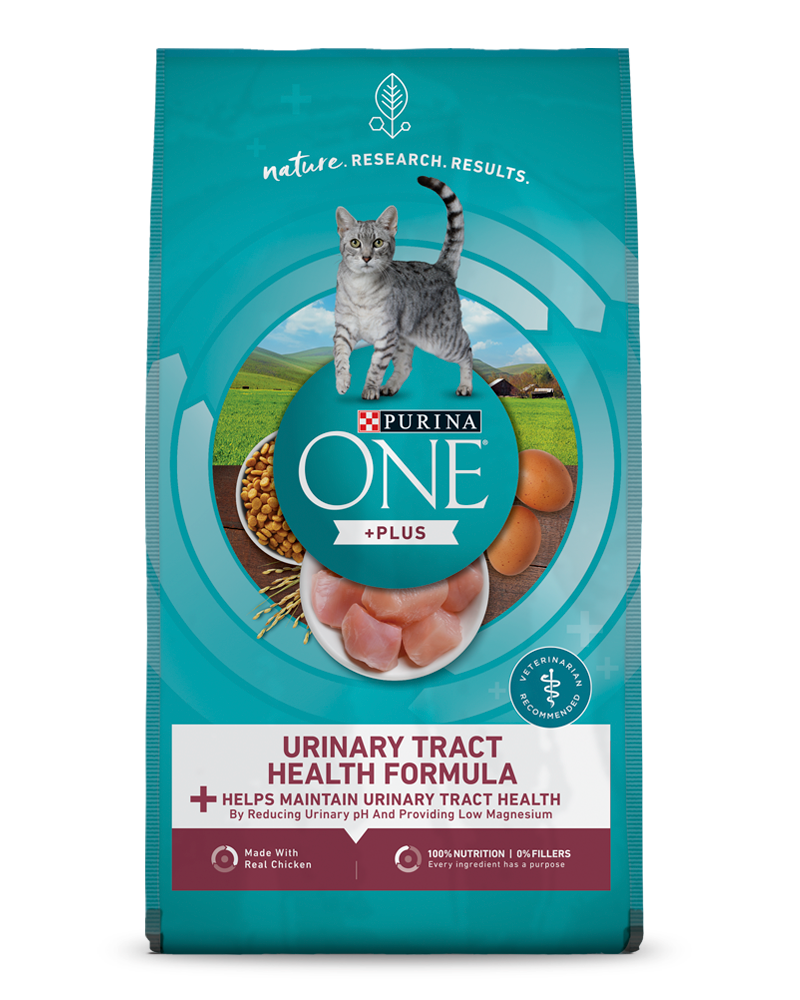
Faqs About Bladder Stones And Diet
Pet owners often have questions about bladder stones and diet. Understanding these issues helps in making informed choices. Let's explore some common concerns and clarify myths.
Answering Common Concerns
Many pet owners worry about how diet affects bladder stones. Here are some frequently asked questions:
- What are bladder stones? Bladder stones are hard mineral formations in a dog's bladder.
- How do I know my dog has bladder stones? Symptoms include frequent urination, pain, and blood in urine.
- Can diet prevent bladder stones? Yes, certain diets can help reduce the risk.
- What ingredients should I look for? Ingredients like low magnesium and high water content are beneficial.
Myths Vs. Facts
Many myths surround bladder stones and diet. Let's clarify some of these misconceptions:
| Myth | Fact |
|---|---|
| All dog foods prevent bladder stones. | Not all foods are effective. Choose specific brands. |
| Homemade diets are always better. | Homemade diets can lack essential nutrients. |
| Only dry food causes bladder stones. | Both dry and wet food can contribute to stones. |
| Once stones are removed, diet doesn't matter. | Diet plays a crucial role in prevention. |
Understanding these facts helps in choosing the right diet. Always consult your vet for personalized advice.
Frequently Asked Questions On Best Non Prescription Dog Food for Bladder Stones
What Are Bladder Stones In Dogs?
Bladder stones, or uroliths, are mineral formations in a dog's bladder. They can cause discomfort, frequent urination, or blood in urine. Certain breeds are more prone to these stones. Proper diet and hydration can help prevent their formation.
How Can Diet Help Prevent Bladder Stones?
A proper diet can significantly reduce the risk of bladder stones. Foods that promote urine dilution help prevent stone formation. Ingredients high in moisture and low in certain minerals are beneficial. Consult your vet for specific dietary recommendations to ensure your dog’s health.
What Ingredients Should I Avoid In Dog Food?
Avoid dog foods high in ash, calcium, and oxalates. These ingredients can contribute to stone formation in susceptible dogs. Additionally, limit foods with artificial additives and fillers. Always read labels carefully to ensure a healthy diet for your dog.
Are There Specific Brands For Bladder Stone Prevention?
Yes, certain brands offer formulas designed for bladder stone prevention. Look for products labeled for urinary health or formulated for specific stone types. Brands like Hill's Prescription Diet and Royal Canin are popular choices. Always consult your veterinarian before switching to a new diet.
Conclusion
Finding the right non-prescription dog food for bladder stones can significantly improve your pet's health. Prioritize high-quality ingredients and consult your veterinarian for personalized advice. By choosing the best options, you can help manage your dog's condition effectively. A well-balanced diet is key to keeping your furry friend happy and healthy.


